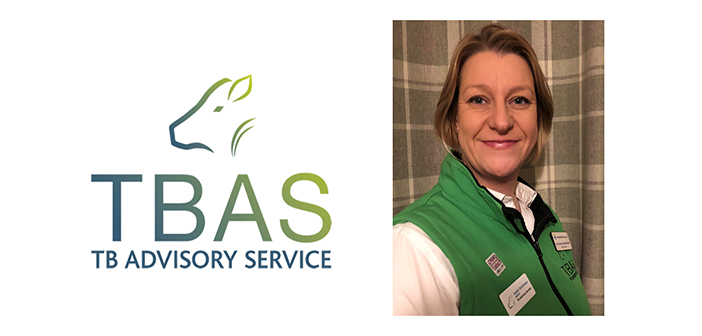A significant step forward has been made to reduce the spread of TB with the expansion of a service offering farmers free biosecurity advice to protect their herds.
From this autumn, the TB Advisory Service (TBAS), which is led by VetPartners, will be available to any farm in England which keeps livestock susceptible to TB, not just those in high risk and edge areas.
Sarah Tomlinson, technical director at TBAS, said the changes will mean even more farmers can be empowered with the tools and know-how to assess what can be controlled on-farm to reduce the risk and length of a TB breakdown.
She said: “The expansion to TBAS means we can help farmers do everything within their power to prevent the spread of TB into previously unaffected locations.
“At VetPartners we witness the devastation caused by TB first-hand, both for farm businesses and the mental health of people affected by an outbreak. This is why it’s crucial for farmers to get independent veterinary advice, bespoke to their farm, free of charge.”
Mrs Tomlinson explained that pigs, sheep, goats, deer and camelids can all be infected with TB, so it makes complete sense to extend the service to all livestock sectors, giving farmers more control over TB through simple cost-effective changes to farm biosecurity measures.
To use the service, the first step is for farmers to get in touch with TBAS directly. TBAS offers over-the-phone advice on how to stop infected livestock coming on-farm, reduce the risk from other livestock, minimise infection from manure and restrict contact between badgers and livestock by managing access to feed and water.
The main part of the service offers free farm visits, in which a TBAS-trained vet comes out to the farm to provide tailored advice focused on TB biosecurity and how to reduce the impact reactors can have on a farm business.
Mrs Tomlinson said: “A visit from a TBAS advisor, who is often a vet from their local practice, can provide reassurance for a farmer who may be worried about the risk of TB to their farm. Working together with a TBAS advisor will help them to understand what they can control on-farm to reduce risk of disease or the impact of an outbreak.”
The TBAS service fits into the wider strategies in place to get a handle on the disease, which include testing, badger culling and vaccinations.
To deliver the extended nationwide support, VetPartners will draw on the existing network of vets who are trained to offer bespoke advice on biosecurity measures to reduce the spread of TB, and will also upskill additional vets in areas where more TBAS-trained vets are needed.


